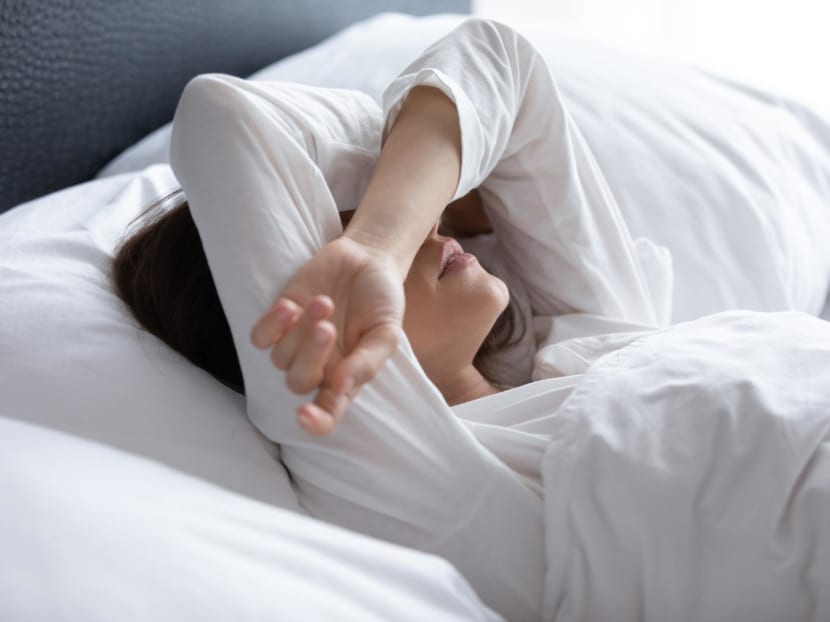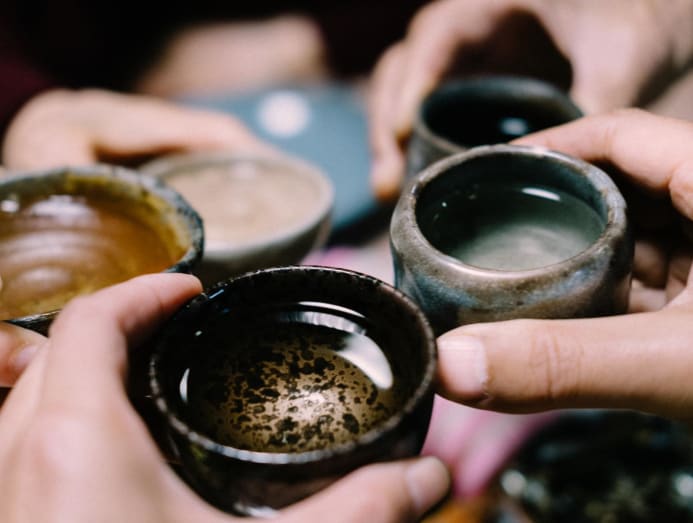Women and alcohol: Why your hangover is worse than a man’s and what to do about it when you drink
From body composition to genetics, here are the reasons why women have worse hangovers than men and what steps they can take to minimise the severity of a hangover.

Women experience more severe hangovers due to their higher body fat percentage, lower amount of body water, and having less of an enzyme that breaks down alcohol. (Photo: iStock/fizkes)
When it comes to women and alcohol, research shows that women metabolise alcohol differently from men. That also means that women experience hangovers differently from men – they have it worse, in fact.
So, if a woman and man of the same weight consumes the same amount of alcohol over the same amount of time, the woman will have a higher concentration of alcohol in her blood, compared with the man.
“Women do experience more severe effects of alcohol compared with men, and this is a result of the differences of body physiology affecting the Blood Alcohol Concentration (BAC),” said Dr Reuben Wong, a gastroenterologist at Gutcare, at Gleneagles Medical Centre.
WOMEN HAVE LESS OF AN ENZYME THAT BREAKS DOWN ALCOHOL
Here’s what happens when you imbibe: “About 20-25 per cent of the alcohol is absorbed into your bloodstream from your stomach and the rest is mostly absorbed through your small intestine,” said Riyana Rupani, a nutritionist who founded Healthy-ish and Happy.

This process is called alcohol metabolism, and two enzymes are needed for it: Alcohol dehydrogenase (ADH) and aldehyde dehydrogenase (ALDH).
ADH is the main enzyme in the liver responsible for breaking down alcohol, and women have only about half the amount of ADH that men have, said Dr Jarrod Lee, a gastroenterologist at Mount Elizabeth Novena Hospital.
That means that any alcohol remains longer in women’s bodies – about 50 per cent longer, he added.
GENDER AND BODY COMPOSITION PLAY A ROLE TOO
When it comes to metabolising alcohol, how much water and fat we have in our bodies plays an important role – and here, women are at the losing end.

The average woman has less body water (45-50 per cent versus 55-65 per cent for men) and more body fat (10 per cent more) compared with men, said Dr Lee from Mount Elizabeth Novena Hospital.
“Water dilutes alcohol and fat retains it,” he explained. “A man’s body will dilute alcohol about 20 per cent more than a woman’s, if they had the same body weight.”
A woman’s higher body fat percentage leads to a slower absorption of alcohol into the bloodstream, which can result in a higher blood alcohol level, said Dr Lee Yin Mei, a senior consultant at the Division of Gastroenterology and Hepatology at the National University Hospital.
So having a lower body weight and lower percentage of body water will result in a woman having a higher BAC and worse hangover symptoms, for the same amount of alcohol consumed, said Dr Wong.
Related:
BEING ASIAN MAKES FOR WORSE HANGOVERS
Doctors told CNA Women that gender aside, ethnic makeup also affects how one’s body processes alcohol.
Dr Lee Yin Mei, the gastroenterologist from NUH, explained that in the body, the enzyme alcohol dehydrogenase (ADH) converts alcohol into a substance called acetaldehyde, which is toxic. The body then needs another enzyme – aldehyde dehydrogenase (ALDH) – to break it down into acetate, which is “relatively harmless” and can be further broken down into carbon dioxide and water.
Eighty per cent of Asians have overactive ADH, said Dr Jarrod Lee from Mount Elizabeth Novena Hospital, and “hence break down alcohol into acetaldehyde quickly, up to 100 times faster”.
This version of ADH is common in Chinese, Japanese and Koreans, but rare in Europeans. It can cause heart palpitations, nausea, vomiting, headaches and is the cause of the dreaded Asian flush added NUH’s Dr Lee.
But that’s not all. About 50 per cent of Asians have a gene that causes them to have “non-functional ALDH”, the other enzyme, said Mount Elizabeth Novena Hospital’s Dr Lee.
This results in a slower and less effective breakdown of toxic acetaldehyde in the body, added NUH's Dr Lee.
“The build-up of acetaldehyde can cause blood vessels to dilate causing flushing, along with nausea, sweating, headache and dizziness. Basically, an instant hangover,” said Rupani, the nutritionist.
The defective ALDH enzyme is more prevalent in people of Chinese descent, Japanese and Koreans, while being much lower in Thais, Filipinos and Indians, said a 2007 Alcohol & Research Health study.
ONE DRINK A DAY, WOMAN
So how much should women be drinking? The recommended alcohol allowance is one standard drink a day, which is 14g of alcohol, said Dr Wong. This is half of the recommended daily allowance for men.
Do note, however, that the World Health Organization has stated that there is no safe amount that does not affect your health, said NUH’s Dr Lee.

A 2018 WHO Global Status Report on Alcohol and Health said that even moderate light consumption of less than 20g of pure alcohol was found to be associated with increased cancer risk.
Related:
DO ANTI-HANGOVER SUPPLEMENTS WORK?
These claim to lessen or inhibit the effects of a hangover. Doctors warn that there is little science when it comes to the claims although Dr Wong said some hangover remedies may work “by addressing the biochemical factors affecting the metabolism of alcohol”.
That said, you should not take the availability of anti-hangover remedies or supplements as reasons to drink irresponsibly.
If you would like to consume supplements to help you cope with a hangover, Rupani said there are two that may support your body in dealing with alcohol better: N-Acetyl Cysteine (NAC) and B vitamins.
N-acetyl cysteine is an amino acid said to help reduce acetaldehyde toxicity while also increasing glutathione, which is a super antioxidant.
Overall, B vitamins can help detoxify the body from alcohol, said Rupani, but vitamin B6 may help reduce the symptoms of a hangover.
Related:
KEEPING A HANGOVER AT BAY
Ultimately, the only way to guarantee you’ll wake up hangover-free would be to not overindulge. Here’s what you can do to keep a hangover at bay – or at least minimise its symptoms.
#1 Stay hydrated with water, not more alcohol. “This not only reduces the BAC, but also dilutes out the metabolites that contribute to a hangover,” said Dr Wong.
Drinking water will also help to reduce the dehydration that accompanies alcohol intoxication, said NUH’s Dr Lee.
Rupani advised drinking at least 1.5 glasses of water for every alcoholic beverage you consume.
#2 Choose your drink carefully. The type of alcohol you consume makes a difference, as different alcoholic drinks contain varying amounts of congeners, a compound found in alcohol. The higher the level, the higher the probability of getting a bad hangover.

According to Dr Wong, red wine and dark spirits such as whiskey and brandy, tend to have higher levels of congeners, which may contribute to a more severe hangover.
#3 Eat before you drink. When you drink on an empty stomach, alcohol enters your bloodstream faster, which can leave you feeling its effects quickly. Food slows down the time it takes for alcohol to be absorbed into the bloodstream, reducing the effects on your body.
#4 Know your limits and pace your drinking. “If you feel buzzed or tipsy, that’s your sign to stop. Your detox pathways are working hard and can’t clear the alcohol from your bloodstream fast enough,” said Rupani.
The liver can process up to one standard drink every hour, she explained. So if you’re drinking alcohol very quickly, "your liver will be unable to process all the alcohol at the same rate, so it remains in the body”.
If you’ve followed all the advice yet still end up with a hangover in the morning, here are a few things you can do. Difficult as it is, get up and exercise to get the endorphins up, which in turn, opens up more detoxification pathways in the body, helping you to feel better faster.
You can also drink coffee. The caffeine reduces blood vessel dilation, which could be the reason behind that pounding headache.
Alcohol can leave you dehydrated, making your hangover feel worse. To counter this, Rupani recommended drinking coconut water or an electrolyte supplement to help restore your hydration and ease your hangover symptoms.
CNA Women is a section on CNA Lifestyle that seeks to inform, empower and inspire the modern woman. If you have women-related news, issues and ideas to share with us, email CNAWomen [at] mediacorp.com.sg (CNAWomen[at]mediacorp[dot]com[dot]sg).








